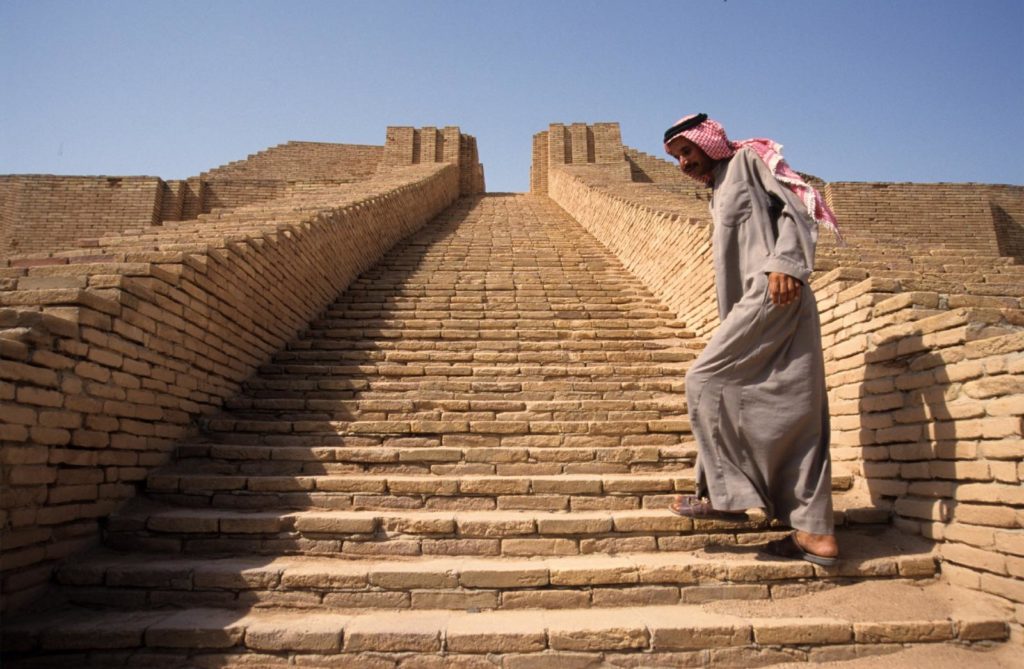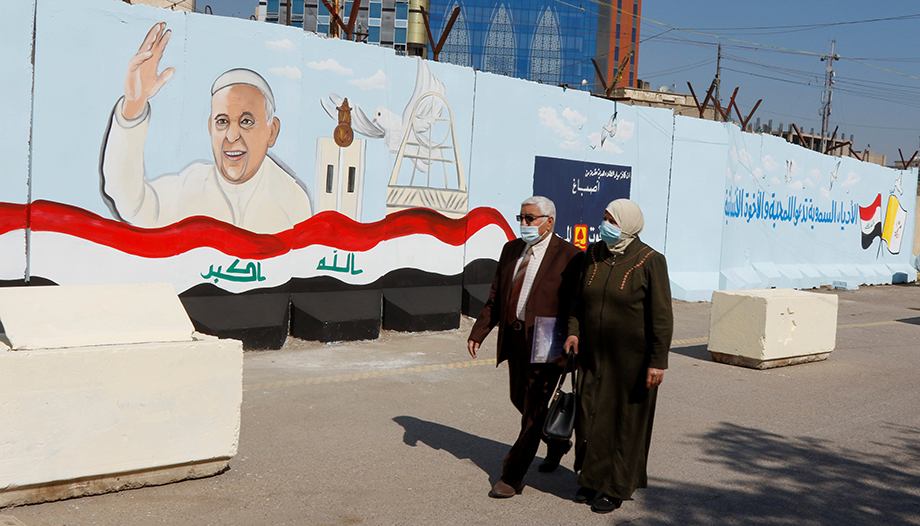From a geopolitical perspective, Iraq is a country that stands out for being a land of passage, a place that has been for centuries a game board for bordering and distant powers. Iraq was the easternmost possession of the Roman Empire, although its dominance was always weak due to Persian pressure. Later, Iraq became the bloody frontier of the rival Byzantine and Sassanid empires.
After the Arab conquests, Iraq gained a prominence not seen since ancient Babylon. With the Abbasid dynasty, Baghdad was founded to serve as the capital of the caliphate. This coincided with the beginning of the golden age of Islam. Baghdad is the heart of a flourishing empire and one of the richest and most prosperous cities in the world during the early Middle Ages. This period of splendor came to an abrupt end with the Mongol invasions. In 1258 Baghdad was razed to the ground and its inhabitants exterminated. After the Mongols, Iraq suffered the Black Death and, finally, a new invasion from the East. In 1401 Tamerlane conquered the city with a new massacre that put an end to this dark period.
Baghdad would never regain its magnificence. Iraq would no longer be the actor and center, as it was during the Abbasid dynasty, but would return to the position of a disputed dividing line of rival empires. Ottomans and Safavids would dispute its control during the 16th and 17th centuries. Finally, Iraq fell into Ottoman hands, although it never ceased to be the scene of wars between the Ottomans and Persians.
World War I marks the end of Turkish rule with the British conquest. The modern Iraq as we know it today was born. The British shaped it with the union of three Ottoman provinces. London also invented a monarchy to rule the country. A member of the Hashemite family from Arabia was placed on the throne. Both the British and the Hashemites made the historic decision to rely on the Sunni Arab minority to administer the country. The consequences of this gamble are still palpable.
After the withdrawal of the British in 1954, the monarchy was brutally overthrown in 1958. Iraq then became a republic under the control of the socialist military. Over time, a current within the military seized power and established a one-party dictatorship in Iraq: the Baath. It was a secular, nationalist, radical socialist, Moscow-allied and anti-Zionist party. Little by little, a figure within the party, Saddam Hussein, began to seize the levers of power until he became dictator.
The turbulent years, 1980 - 2000
After the Islamic revolution in Iran, Saddam decided to take advantage of the situation to invade the country. The Iran-Iraq war (1980-1988) left around one million dead and two countries devastated. Saddam then dragged Iraq into another war by invading Kuwait in 1990. The Gulf War was a humiliating defeat for Saddam. His army was annihilated and expelled from Kuwait. Fed up with the brutality of Saddam's policies and the fact that he had continued his policy of favoring the Sunni Arab minority, the Kurds in the north and the Shiites in the south decided to revolt and overthrow the regime. However, in the absence of Western support, the rebels were brutally crushed by Saddam (chemical weapons were even used against the civilian population).

In the 1990s Iraq was a weakened country, under harsh economic sanctions and with U.S.-imposed no-fly zones to the north and south to prevent Saddam from again gassing or bombing Kurdish and Shiite populations. Despite international pressure, Saddam continued to lead the country. In 2003, Washington decided to end the impasse by invading the country. The Baath Party regime was dismantled and Saddam was executed. A chaotic transition process then began in which US troops found themselves in the midst of a civil war between the Shiite and Sunni populations. The Sunni minority watched in panic as the political and economic influence it had enjoyed for the past 100 years evaporated in a democratic Iraq. Under the new system, numbers would inevitably prevail. The Shiites made their demographic dominance evident in the various elections. Part of the Sunnis, fearful of Shiite reprisals and dissatisfied with their sectarian politics, threw themselves first into the arms of Al Qaeda and then of the Islamic State to confront a Baghdad government they saw as corrupt adversaries. In the meantime, the Kurds took advantage of the circumstances to create a state de facto independent to the north.
Although US troops had left the country in 2011, they were forced to return in 2014 to deal with the new instability. With the Islamic State defeated, peace and stability have not fully returned. Iraq has become in recent years a game board for regional and foreign powers, including Iran, the United States and the Gulf monarchies.
At the present time
Despite wars, insurgencies and regime changes, Iraq has experienced a spectacular population explosion. Since 1980, the population has tripled. The only group that has been left out of this process is the Christian minority, which in recent years has gone from 10% of the census to less than 1%. Christians are the only orphan group in the country. Without powerful foreign allies and access to the country's elites, the ignored Christian minority is not a relevant actor in the country. Worse, it has been the safety valve on which sectarian anger has fallen with each of the misfortunes that have befallen the country in recent years.
D. in History and Professor of International Relations at the Francisco de Vitoria University.








